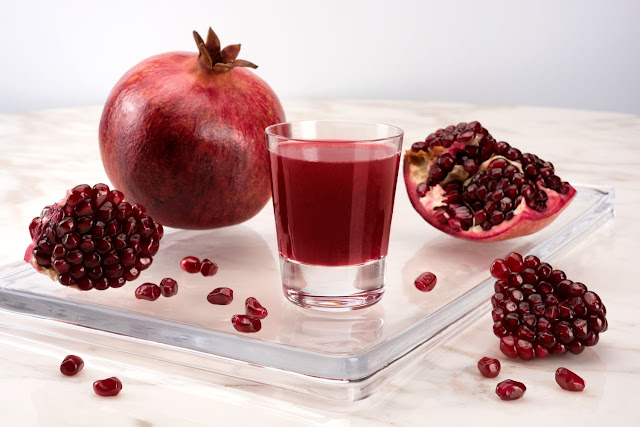Blood Sugar Levels - In today's fast-paced world, health concerns are at the forefront of many individuals' minds. One of the most prevalent health issues worldwide is blood sugar irregularities, which can lead to serious conditions such as diabetes if left unchecked. Understanding the risk factors associated with blood sugar issues is crucial for proactive management and prevention. In this comprehensive guide, we delve into the various factors that contribute to blood sugar imbalances and offer valuable insights for maintaining optimal health.
Genetics and Family History
Genetics play a significant role in determining an individual's predisposition to blood sugar issues. Family history is often a strong indicator of potential health concerns, including diabetes and insulin resistance. Those with a family history of diabetes are at a higher risk of developing the condition themselves. While genetic factors cannot be changed, awareness of familial predispositions empowers individuals to take proactive steps towards managing their health.
Sedentary Lifestyle
In today's modern society, sedentary lifestyles have become increasingly prevalent due to technological advancements and the rise of desk jobs. Lack of physical activity is a major risk factor for blood sugar issues as it contributes to weight gain, insulin resistance, and impaired glucose metabolism. Incorporating regular exercise into one's routine is essential for maintaining optimal blood sugar levels and overall health.
Poor Dietary Choices
Dietary habits play a crucial role in determining blood sugar levels. Consuming excessive amounts of refined sugars, processed foods, and high-glycemic carbohydrates can lead to spikes in blood glucose levels and insulin resistance over time. A diet rich in whole foods, fiber, and healthy fats promotes stable blood sugar levels and supports metabolic health. Adopting a balanced and nutritious diet is paramount for mitigating the risk of blood sugar issues.
Obesity and Weight Management
Obesity is closely linked to insulin resistance and type 2 diabetes, making it a significant risk factor for blood sugar issues. Excess body fat, particularly around the abdomen, contributes to inflammation and metabolic dysfunction, leading to insulin resistance and impaired glucose tolerance. Achieving and maintaining a healthy weight through a combination of diet, exercise, and lifestyle modifications is essential for reducing the risk of blood sugar imbalances.
Stress and Mental Health
Chronic stress and poor mental health have been shown to impact blood sugar regulation and metabolic function. The body's response to stress involves the release of hormones such as cortisol and adrenaline, which can elevate blood glucose levels and disrupt insulin sensitivity. Implementing stress-reduction techniques such as mindfulness, meditation, and adequate sleep can help support healthy blood sugar levels and overall well-being.
Sleep Quality and Duration
Sleep plays a vital role in maintaining metabolic health and regulating blood sugar levels. Poor sleep quality and insufficient sleep duration have been linked to insulin resistance, glucose intolerance, and an increased risk of developing type 2 diabetes. Prioritizing quality sleep by establishing a consistent sleep schedule, creating a conducive sleep environment, and practicing relaxation techniques promotes optimal metabolic function and reduces the risk of blood sugar issues.
Medications and Health Conditions
Certain medications and underlying health conditions can influence blood sugar levels and increase the risk of developing diabetes. Medications such as corticosteroids, antipsychotics, and beta-blockers may affect insulin sensitivity and glucose metabolism. Additionally, conditions such as polycystic ovary syndrome (PCOS), thyroid disorders, and hormonal imbalances can predispose individuals to blood sugar irregularities. It is essential to be aware of the potential effects of medications and health conditions on blood sugar and to consult healthcare professionals for personalized guidance.
Age and Hormonal Changes
Age is a significant factor in the development of blood sugar issues, with the risk increasing as individuals grow older. Aging is associated with changes in hormone levels, decreased insulin sensitivity, and alterations in metabolic function, all of which contribute to an elevated risk of diabetes. Hormonal changes, such as those experienced during menopause, can also impact blood sugar regulation and insulin sensitivity in women. Proactive lifestyle interventions, including healthy diet and exercise habits, are essential for mitigating age-related changes and maintaining optimal metabolic health.
Environmental Factors
Environmental factors, such as exposure to toxins and pollutants, can influence blood sugar regulation and metabolic function. Chemicals found in air pollution, pesticides, and household products may disrupt endocrine function and contribute to insulin resistance and diabetes risk. Minimizing exposure to environmental toxins through lifestyle modifications, such as using natural cleaning products and reducing reliance on plastic, can help support metabolic health and reduce the risk of blood sugar issues.
Conclusion
In conclusion, identifying and understanding the risk factors associated with blood sugar issues is essential for proactive management and prevention. Genetic predisposition, lifestyle choices, environmental factors, and underlying health conditions all play a significant role in determining an individual's susceptibility to blood sugar imbalances. By adopting a holistic approach to health that encompasses regular exercise, balanced nutrition, stress management, and adequate sleep, individuals can optimize metabolic function and reduce the risk of developing diabetes and other related health conditions.





